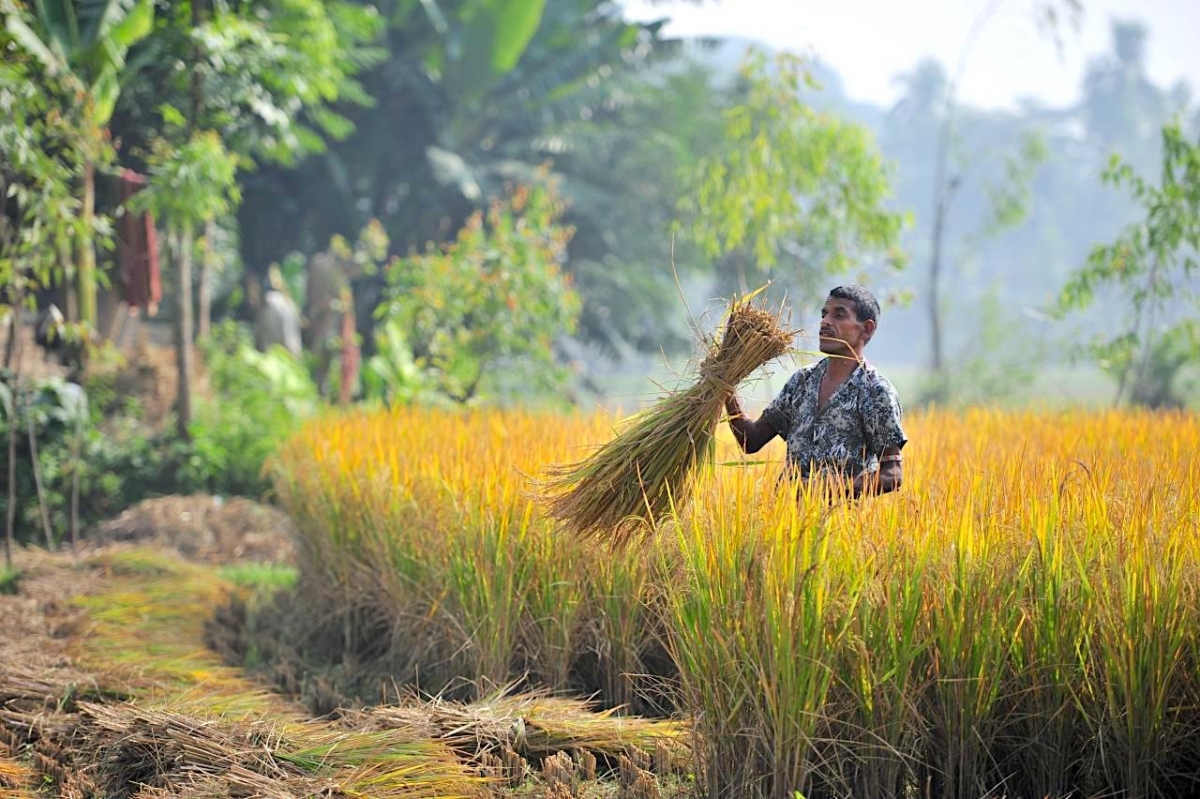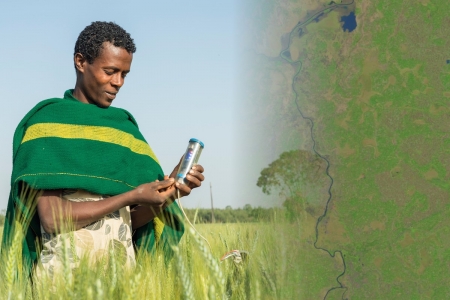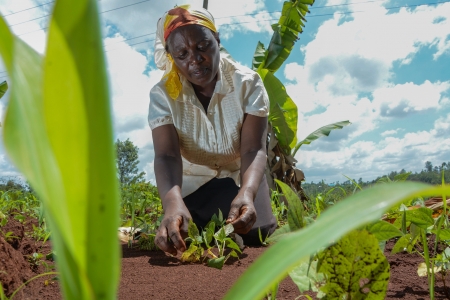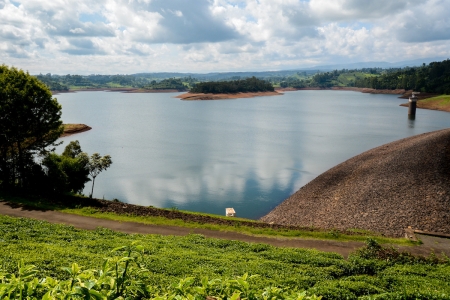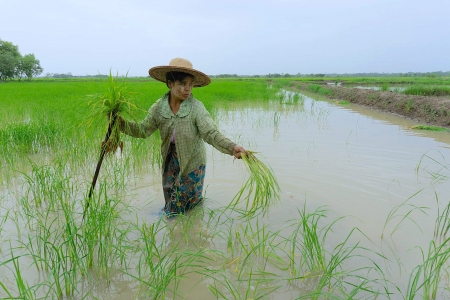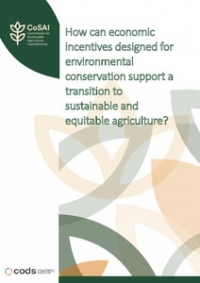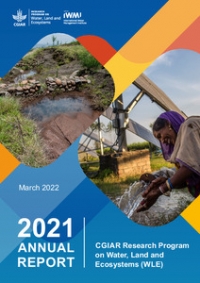With the 25th Climate Change Summit under way, we report on a satellite-based insurance helping Asia’s farmers cope with weather shocks
Flood-struck Bangladeshi farmers who participated in a trial of a satellite-based flood insurance scheme are to receive a payout totaling 2.67 million BDT (USD $31,500).
The money will compensate 3,500 smallholders (750 households) from two upazila (sub-districts) of Gaibandha district for damage to crops sustained during the 2019 monsoon season. The scheme is the first in the country using satellite data to insure low-income rural households against climate-related risks.
At the heart of the scheme is an innovative Index-Based Flood Insurance (IBFI), developed by the International Water Management Institute (IWMI) and partners the CGIAR Research Programs on Climate Change, Agriculture and Food Security (CCAFS) and on CGIAR Research Programe on Water, Land and Ecosystems (WLE), Oxfam Bangladesh, and insurance companies Green Delta and Swiss Re.
IWMI researchers developed the model using data from Nasa’s MODIS satellite to map inundation on a daily basis from 2001 to 2009, with correction for days with cloud cover. This helped to highlight historic flooding patterns and show where inundation was most likely to occur in future. They validated the model using water-level data from the Bangladesh Water Development Board (BWDB) and European Space Agency (ESA) Sentinel-1 SAR satellite data.
When flooding occurs, the model calculates the proportion of land that is flooded in relation to the total geographical area of the upazila in question, with the sum insured of BDT 12,000 (USD $140).
So, if the model indicates that 22% of land is inundated, the community receives BDT 2640 (USD $31); if 50% of land is flooded, they receive BDT 6000 (USD $70), and so on. For the 2019 flood claim, the scientists used satellite images to estimate the inundated area to assist the insurance companies identify farmers eligible for compensation.
Heavy rain battered Bangladesh from early July 2019, affecting 7.3 million people. Nine districts were severely flooded, including Gaibandha. IWMI and partners were able to calculate that households in the two participating upazila of Fulchari and Sughatta should be compensated to the value of BDT 2,617,200 (USD $30,850) and BDT 55,200 (USD $650), respectively, for damage to crops incurred during the insurance period of August to October. The payout took just two weeks to calculate, and farmers will receive their individual payouts direct to their bank accounts this month.
This successful trial in Bangladesh followed a pilot project using an earlier version of the IBFI across 15 villages of Muzaffapur district, Bihar, India, in 2017 and 2018. On this occasion, farmers in 1,200 households were insured by the Agricultural Insurance Company of India Ltd. and HDFC Ergo General Insurance Company, with Swiss Re as reinsurer. Some 650 households received insurance payouts totaling INR 814,030 (USD $11,350), with payments made directly to eligible farmers in late 2018.
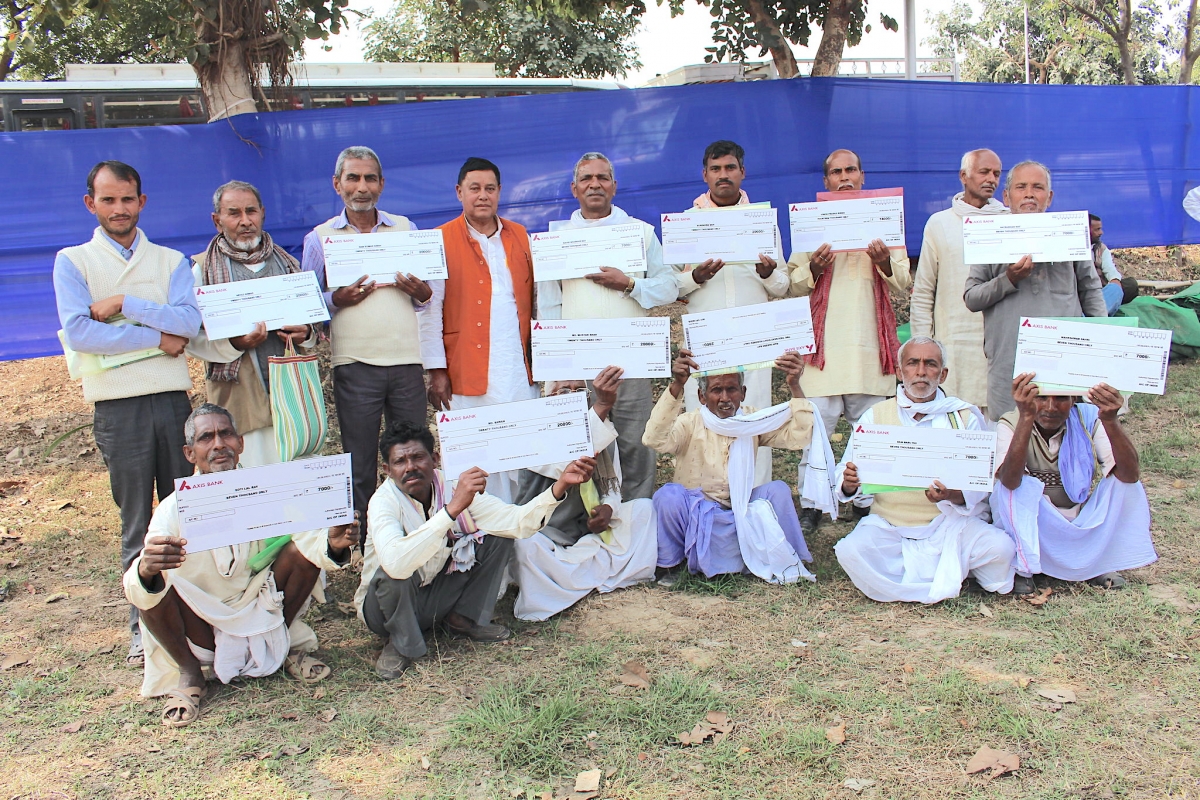
Disasters on the rise
In South Asia, climate change is increasing the frequency and intensity of weather-related disasters, displacing populations, exacerbating conflicts and hindering efforts to reduce poverty and inequality. Such events particularly affect poor and vulnerable people who depend on agriculture for livelihoods and subsistence. However, insurance products such as IBFI have the potential to cushion the blows for small-scale farmers and help them get back on their feet.
“In the past, poorer farmers were excluded from insurance as they could not afford the premiums, explains Dr. Giriraj Amarnath, Research Group Leader for Water Risks and Disaster at IWMI. “However, IBFI’s use of satellite technology negates the need for wide-ranging checks on the ground, keeping premium rates within affordable limits and ensuring claims can be settled quickly.”
In Bangladesh, as Gaibandha’s insured farmers eagerly await their payouts, Dr. Amarnath and his team are in discussions with insurers and the Ministry of Finance to extend the pilot to 13 districts. Meanwhile, in India, IWMI is conducting trials bundling IBFI with other components: improved seed varieties, weather forecasting services and climate-smart farming practices to get farmers up and running again quickly after either a drought or flood.
“Scaling up such insurance schemes stands to benefit not only smallholder farmers but also governments and the private sector,” explains Dr Amarnath. “Building farmers’ resilience to climate shocks will mean governments have a greater chance of reducing the costs of post-disaster recovery. While expanding schemes will provide insurance companies with the opportunity to sell more policies, which can keep premium prices low and reduce government subsidies.”
For farmers and governments, this could mean a win-win situation.
